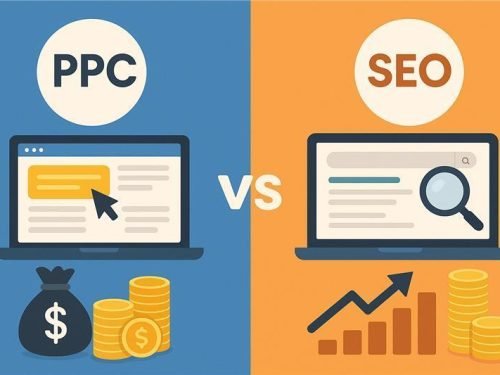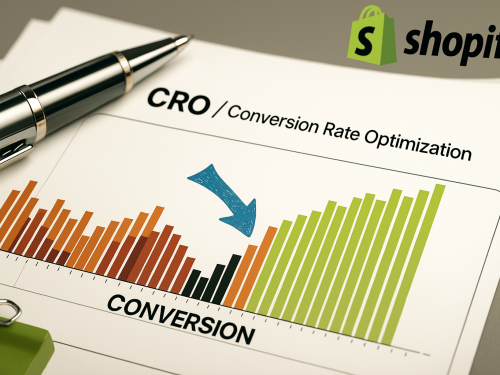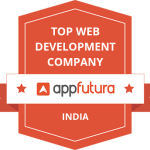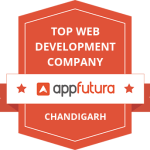Two of the most powerful internet advertising platforms are Facebook Ads and Google Ads. These online platforms promote the brand, attract leads, and, more importantly, drive sales. Both are pay-per-click (PPC) models.
When both platforms serve a similar purpose, the question arises: Which platform offers better ROI for businesses? In this article, we will compare Facebook Ads ROI and Google Ads ROI, helping you understand which is the better fit for your business goals.
Let’s get started.
Before discussing which platform offers better ROI, let’s understand Facebook Ads and Google Ads separately.
Facebook Ads
According to Satista’s updated report on May 21, 2024, With roughly three billion monthly active users as of the second quarter of 2023, Facebook is the most used online social network worldwide. Additionally, businesses spent over $113 billion on Facebook Ads in 2022, highlighting its importance in digital marketing.
Here are the key features of Facebook Ads:
- Targeted Advertising:
- Facebook Ads offer advanced targeting options. Advertisers can narrow their audience by age, location, gender, interests, and even behaviors.
- Visual Content:
- Facebook’s ad formats prioritize visuals. Whether it’s an image, carousel, or video ad, the focus is on engaging, eye-catching content.
- Custom Audiences:
- Advertisers can retarget users who interacted with their website, app, or previous ads.
- Affordability:
- Facebook Ads are budget-friendly, with average costs per click (CPC) ranging from $0.50 to $2.00 depending on the industry.
- Best for B2C Businesses:
- Facebook excels in connecting with individual consumers, making it ideal for B2C companies.
Google Ads
According to Statista, the updated report was published on May 22, 2024. In 2023, Google’s ad revenue amounted to 237.86 billion U.S. dollars. The company generates advertising revenue through its Google Ads platform, which enables advertisers to display ads, product listings and service offerings across Google’s extensive ad network (properties, partner sites, and apps) to web users.

Here are the key features of Google Ads:
- Search Intent Targeting:
- Google Ads target users who are actively searching for products or services. This means higher purchase intent.
- Diverse Ad Formats:
- It offers search ads, display ads, shopping ads, and YouTube ads catering to various business needs.
- Wide Reach:
- Google Ads extend beyond search results, appearing on partner websites and apps through the Google Display Network.
- Cost Variability:
- Google Ads tend to have higher CPCs, averaging $1 to $2 on search networks and $0.50 on display networks.
- Best for B2B Businesses:
- Google’s focus on search intent makes it ideal for B2B businesses looking for high-quality leads.
Facebook Ads vs. Google Ads: A Direct Comparison
Audience Targeting
- Facebook Ads:
- Offers superior demographic and behavioral targeting.
- Great for finding new customers through interest-based targeting.
- Google Ads:
- Targets users based on search intent.
- Ideal for capturing demand rather than creating it.
Cost Efficiency
- Facebook Ads:
- Lower CPC, making it budget-friendly.
- Effective for small to medium businesses.
- Google Ads:
- Higher CPC but often yields high-quality leads.
- Works well for businesses with larger budgets.
ROI Potential
- Facebook Ads ROI:
- Delivers excellent ROI for B2C brands with engaging visual campaigns.
- Works well for nurturing customer relationships.
- Google Ads ROI:
- Provides better ROI for businesses with high-value products or services due to intent-based targeting.
Ad Types and Performance
- Facebook Ads:
- Best for creating brand awareness and engaging audiences.
- Requires visually appealing content.
- Google Ads:
- Best for driving conversions directly from search intent.
- Requires keyword-optimized campaigns.
Which Platform Offers Better ROI?
For Small Businesses
- Facebook Ads typically offer better ROI due to their affordability and audience reach. Small businesses can achieve higher visibility without significant investment.
For High-Intent Campaigns
- Google Ads often deliver better ROI for high-value, intent-based campaigns. For example, businesses in niches like legal services or real estate benefit from Google’s specific targeting.
For Long-Term Growth
- Using both platforms strategically provides the best results. Facebook Ads drive awareness, while Google Ads convert searchers into buyers.
Factors Affecting ROI
- Ad Objectives: The ROI depends on whether your goal is awareness, lead generation, or conversions.
- Target Audience: Facebook Ads work best when targeting broader audiences, while Google Ads excel in high-intent targeting.
- Budget Allocation: Facebook Ads offer better value for small budgets, whereas Google Ads demand more investment but may yield higher-quality leads.
Case Studies: Real-World Insights
E-Commerce Brand:
- A small e-commerce business used Facebook Ads for brand awareness and Google Ads for conversions. The combination resulted in a 30% increase in ROI within three months.
Local Service Provider:
- A plumbing service focused solely on Google Ads to capture high-intent leads. This led to a 25% higher conversion rate compared to Facebook Ads.
B2C Retailer:
- By leveraging Facebook’s carousel ads, a clothing brand increased click-through rates by 50% and generated a 20% higher ROI compared to using Google Ads alone.
Combining Facebook Ads and Google Ads

To maximize ROI, consider a combined approach:
- Use Facebook Ads to build awareness and nurture potential customers.
- Use Google Ads to capture high-intent leads and drive conversions.
- Retarget your audience on both platforms for a holistic campaign.
When to Choose Facebook Ads
- Visual-Driven Campaigns: If your products or services benefit from visual representation, Facebook is a good choice.
- B2C Marketing: Ideal for connecting directly with individual consumers.
- Low-Budget Marketing: Small businesses can achieve great results without high expenditure.
- Brand Engagement: Facebook’s interactive ads promote stronger brand connections.
When to Choose Google Ads
- Search Intent Targeting: If your audience is actively searching for your offerings, Google Ads are a good option.
- B2B Marketing: Perfect for industries like technology, consulting, or manufacturing.
- Immediate Conversions: High-intent audiences often lead to faster results.
- High-Value Sales: Google Ads are usually ideal for businesses with higher-priced products or services.
Final Thought
The return on investment (ROI) of Facebook Ads and Google Ads is based upon the objectives, budget, and target demographics of your business. Facebook Ads are suitable for increasing brand awareness and reaching users. Google Ads perform better in capturing demand and generating revenue almost immediately.
A mix of both platforms often results in the maximum ROI. Review your marketing plan and spend resources accordingly. When optimizing correctly, Facebook Ads ROI and Google Ads ROI can significantly help your business. Understanding your goals and testing with different campaigns can help you determine which platform or combination will help you achieve the most success.
Partner with Geek Informatics & Technologies Pvt. Ltd. for Smarter Ad Campaigns and Higher ROI!
Change your advertising approach now! Geek Informatics & Technologies Pvt. Ltd. offers services to help you achieve the best results on Facebook and Google Ads using efficient strategies. The world needs successful campaigns, so let us create them.









